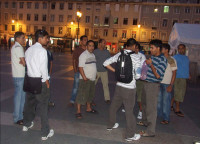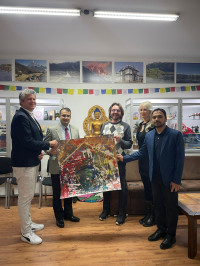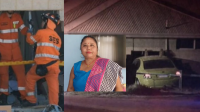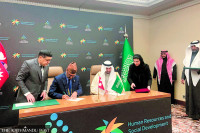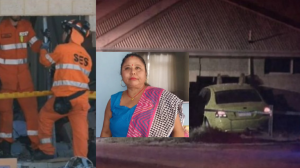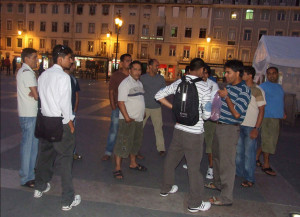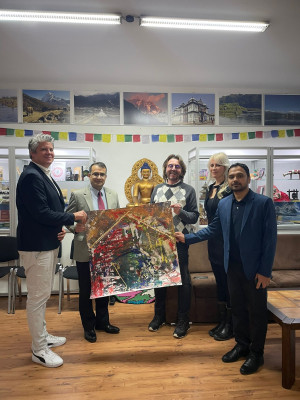Nepali Diaspora
NRNA rift deepens as PM and FM pick sides
A ‘unity convention’ meant to heal divisions has instead widened them, with boycotts and parallel claims to leadership of the diaspora body.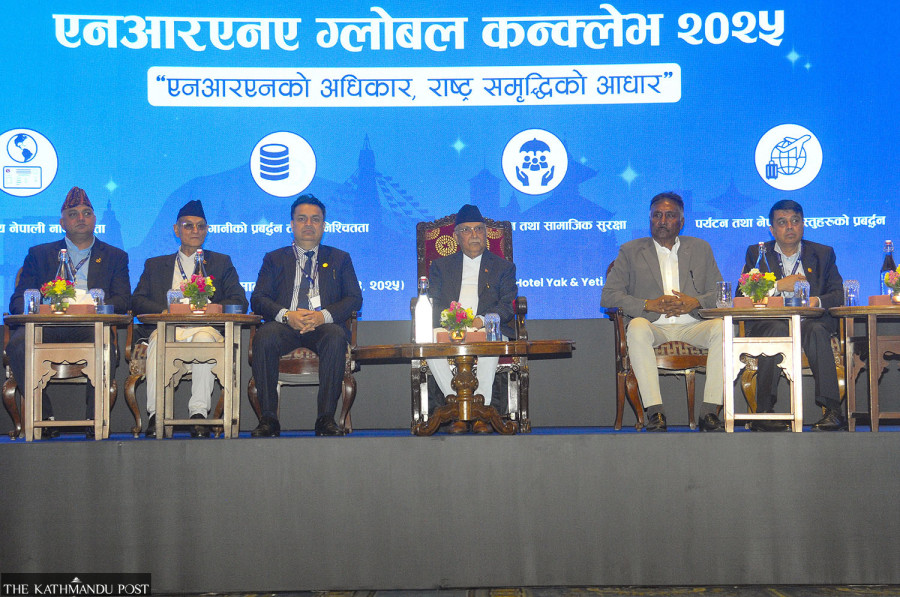
Anil Giri
Prime Minister KP Oli and Foreign Minister Arzu Rana Deuba are at odds over the leadership of the Non-Resident Nepali Association, an umbrella organization of Nepali expatriates worldwide.
The prime minister and his foreign minister are now backing and supporting two rival factions within the NRNA and this has further intensified the leadership dispute that has long plagued the organisation of the Nepali diaspora.
The dispute inside NRNA goes back several years, but the association was vertically divided in October 2023 after Badri KC was elected president of the organisation. The election results were opposed and boycotted by two of his close rivals, Mahesh Shrestha and RK Sharma, backed by the Nepali Congress and CPN (Maoist Centre), respectively.
Prime Minister Oli on Wednesday clearly expressed support for KC, the incumbent president of the NRNA who was elected at the 11th convention in 2023 with a disputed mandate.
Addressing the NRNA Global Conclave on Wednesday, the prime minister stated that KC’s term is still valid until October 21, sending a clear message that he is not going to accept the new leadership recently backed by Foreign Minister Deuba.
KC was backed by the UML during the 2023 elections. NRNA leaders claimed it is an organisation of eight million Nepali diasporas.
The world conference of the Nepali Diaspora had in October 2023 elected KC, who secured 1,378 votes. Shrestha, a contender for the presidential position, garnered 1,225 votes, while Sharma received 1,281. Shrestha and Sharma rejected the results, claiming the election was rigged. All three started running the association parallelly.
The issue of election rigging reached the Supreme Court. On April 3, 2024, the court ordered the NRNA to hold a “unity convention”.
The controversy began when Keshab Paudel, a vice president candidate, saw his vote count register as zero and took the matter to the court.
Following the Supreme Court’s order, the Ministry of Foreign Affairs on April 11,2024 sent a letter to the NRNA, instructing its secretariat to carry out only regular administrative activities until a new ‘international coordination council’ is formed. While issuing the instruction, the ministry’s letter referred to clause 16 (2) of Non-Resident Nepali Rules 2066 BS and the Supreme Court’s order.
But NRNA was already mired in controversy. Before KC was elected, leadership disputes had emerged during the 10th general convention.
Amid the dispute, the 10th convention held on March 27, 2022, elected Kul Acharya, KC, and Rabina Thapa as chairpersons. Each of the chairpersons would serve a six-month term. This arrangement had received the government legitimacy, but became another source of leadership dispute, marred by party politics.
One office bearer of the NRNA said, “Our movement has fallen flat and reached a new level of controversy.”
As the dispute escalated, the case reached not just the police, but also the Supreme Court. On April 4, 2023, a division bench of justices Sapana Pradhan Malla and Nahakul Subedi invalidated all NRNA committees. The court handed over the entire responsibility of managing the association to a dispute resolution committee led by Shesh Ghale, a former NRNA president. The Malla-led bench also directed that a unity convention be held after resolving the dispute.
A week later, the then government wrote to the NRNA Secretariat instructing it to perform only daily administrative works, effectively barring KC from working, in accordance with the court’s verdict.
Dissatisfied with the government’s [foreign ministry’s] decision, KC and others moved the top court.
On August 6, the court cleared the way for KC’s working committee to resume its duties. On Wednesday, Prime Minister Oli cited the same Supreme Court’s order and declared KC the legal and authentic president of the NRNA.
On October 20 last year, the foreign ministry wrote to Ghale and the NRNA Secretariat regarding the implementation of the Supreme Court’s decision dated April 4, 2024. Sharma's team then moved the top court against the foreign ministry’s decision.
In the following November, the foreign ministry responded to the court and sought six months to implement the Supreme Court's first verdict regarding the general convention of the NRNA. In its response, the foreign ministry stated that it was committed to ensuring that the “unity convention” is held within six months as per the court’s April 4, 2023 verdict, and expressed hope that rival NRNA factions would amicably settle their differences and join the election process. But that did not happen. The KC faction announced a boycott of the “unity convention” and even went to court to prevent it from being held.
Ahead of the “unity convention” on May 3, KC issued a statement saying that with the case still pending and the Supreme Court unable to hear it, the “unity convention” would only lead to further division.
"We call upon the group attempting to gather in the name of the unity convention to abandon their stubbornness and come to the path of dialogue. Furthermore, all activities carried out in the name of the unity convention (from membership distribution to delegate selection and voter processes) are contrary to the current NRNA statute. It is certain that an election conducted by a committee by creating its own procedures will not be granted legitimacy,” said KC in the statement, adding that he is committed to holding the regular convention from October 11 to 14.
According to the Supreme Court’s order, the Ministry of Foreign Affairs designated Ghale to organise the “unity convention,” which concluded on May 3 and elected a new leadership led by Shrestha, who had been defeated by KC in October 2023. With this, the NRNA now has two presidents—KC and Shrestha.
On May 3, Foreign Minister Deuba and Ghale jointly inaugurated the “unity convention,” backed by some NRNA activists and senior leaders. However, senior NRNA activists and leaders like Upendra Mahato, Jeeba Lamichhane, and Kumar Panta were against holding the “unity convention” as directed by the Supreme Court and did not participate in it. KC and his faction also boycotted the “unity convention.”
Oli on Wednesday said that the NRNA under the KC's leadership would conduct a democratic and lawful general convention and ensure a transfer of leadership. He emphasised that tendencies contrary to the organisation's objectives should not emerge and urged everyone to abandon narrow-minded attitudes and work towards greater unity. He stated that an organisation cannot function by amending its statute to suit individuals, especially when it should be moving forward in a spirit of unity.
The prime minister also invalidated “unity convention” the way it was convened .
He said misguided intentions had created conflict and clashes in the name of the unity convention and added that it was not appropriate to divide the NRNA based on self-interest. He advised adopting a generous approach by engaging in dialogue with the dissatisfied faction and including them under the current leadership to move forward together.
Inaugurating the “unity convention” on May 3, Foreign Minister Deuba said that the NRNA is not a political organisation and urged its leaders to unite with a selfless spirit to fulfill the noble objectives of the organisation. She also expressed commitment that she and the Ministry of Foreign Affairs would provide necessary support and facilitation to help NRNA achieve its goals.




 18.12°C Kathmandu
18.12°C Kathmandu
